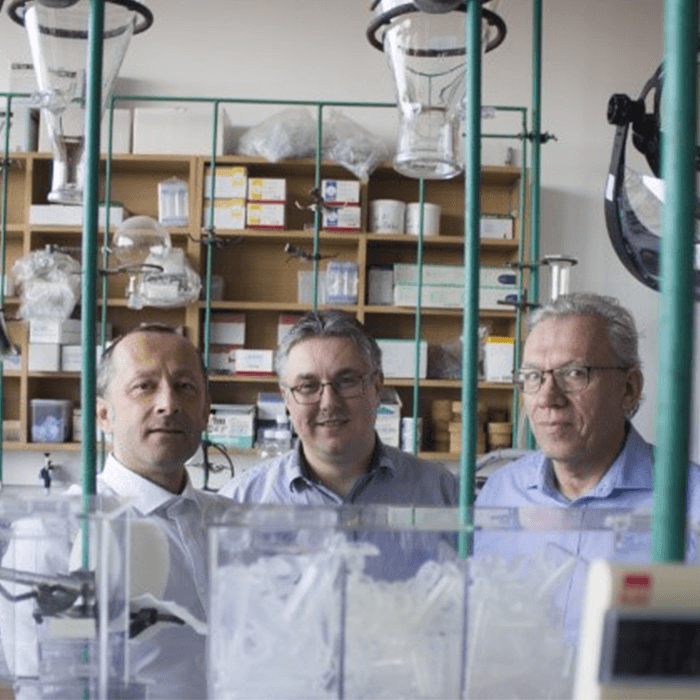The creation of the start-up Sophomer is an example of the transfer of a specific technology and the connection between science and industry. However, it also shows how effectively cooperation within the Czech Academy of Sciences can work. “Diagnostic test manufacturers approached us to see if we could find a suitable technology for them in an academic setting. We found it at the Institute of Macromolecular Chemistry of the CAS and after successful validation tests we assembled a joint development team,” says Jiří Moos from the i&i Prague bio-innovation centre, which has been behind the project from the beginning.
Martin Smekal, the head of CeTTAV, explains what the action looked like, “The management of the Institute of Macromolecular Chemistry asked us directly for help in establishing cooperation. We considered several scenarios at first, but the department finally decided on a licensing agreement. We applied some proven models from previous similar projects when setting the licence terms – but even so, it was definitely not a routine job.”
Dozens of similar cases
CeTTAV is currently working on approximately thirty similar cases. However, my colleagues cannot go into details now – these are live business cases where the transferors, scientists and their business partners have signed confidentiality agreements. Sometimes the institutes of the Academy of Sciences of the Czech Republic come with requests for expert consultations, for assistance in the preparation of licence agreements or with commercial negotiations. Other times, the transfer agents try to find a scientific result for the interested party, as in the case of Sophomer. “For example, setting up spin-off companies is more complicated. It requires both a high-quality preparation of the business plan and a complex approval process within the CAS”, adds Martin Smekal. CeTTAV focuses on this and, in cooperation with colleagues in the CAS, aims to simplify the establishment of spin-offs for workplaces as much as possible.
Start-up Sophomer is trying to help those who use immunochemical tests at work. One of the first products is the SophoMer™ polymer. The new technology will make analysis easier and cheaper for developing diagnostic tools or detecting the presence of substances in the body and in the environment. Compared to the previously used bovine serum substance, it is fully synthetic, so there is no risk of pathogen transmission. “We are glad that CeTTAV helped with the negotiation of the licence conditions and that other technologies from the Academy of Sciences of the Czech Republic could be applied,” concludes Martin Smekal.
Read more in the press release.
You can read an interview about the transfer with Martin Smekal in the October issue of AB / Academic Bulletin.
AVex’s expert opinion for public authorities on transfer can be found here.




